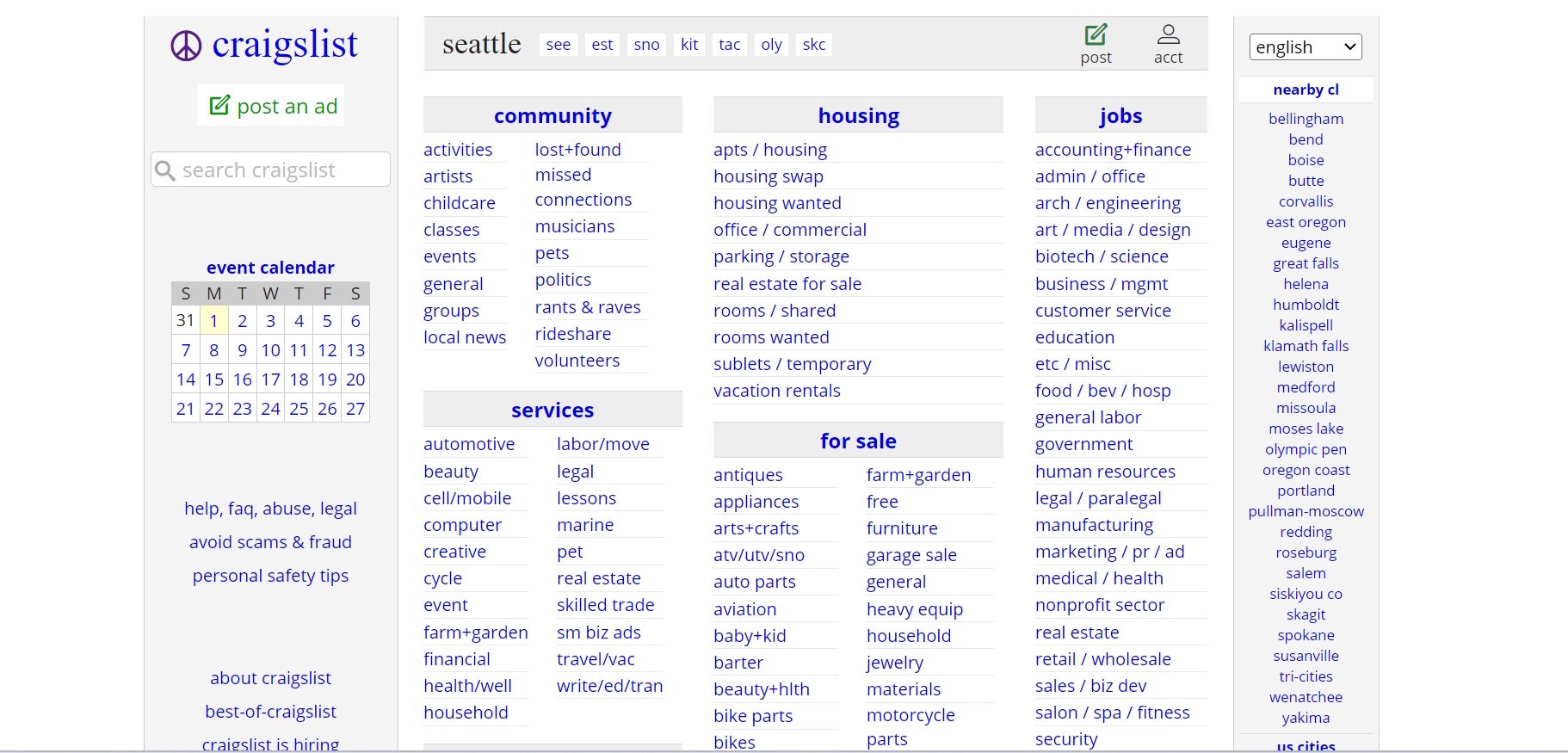For decades, Craigslist has served as an enduring, if sometimes anachronistic, digital town square for Seattleites. From apartment hunting to job searching, and from selling vintage furniture to finding local gigs, its utilitarian interface has been a consistent fixture in the citys digital life. But as the technological currents in one of Americas most innovative cities continue to shift and accelerate, what truly lies ahead for this venerable platform? The answer demands a collective readiness for the unexpected.
Editor's Note: Published on July 19, 2024. This article explores the facts and social context surrounding "what happens to craigslist in seattle prepare for the unexpected".
A Legacy Under Scrutiny
Craigslist's presence in Seattle is deeply woven into the fabric of local commerce and community interaction. Long before the advent of sleek, algorithm-driven marketplaces, Craigslist offered a straightforward, no-frills portal for millions. Its enduring simplicity, often viewed as a strength, allowed it to sidestep the complex data mining and advertising models that define its modern competitors. For many, particularly those seeking affordable options or niche items, Craigslist has remained a go-to resource, providing a raw, unfiltered connection between individuals. This steadfastness has, until recently, lent an air of invincibility to its operations, suggesting a platform immune to the digital churn around it. However, beneath this stable facade, subtle but significant forces are at play, hinting at potential shifts that could redefine its role.
"Craigslist, in its purest form, represents a digital commons a space less about profit and more about direct connection. Its longevity in a city like Seattle, where tech innovation is paramount, is a testament to its functional appeal, but also highlights a certain vulnerability to evolving user expectations."
Dr. Evelyn Reed, Urban Digital Anthropologist
Shifting Tides in Online Classifieds
The digital marketplace landscape has fragmented dramatically over the last decade. Platforms such as Facebook Marketplace, OfferUp, Nextdoor, and a host of specialized apps for everything from real estate to niche hobbies have siphoned off segments of Craigslist's traditional user base. These newer entrants often offer enhanced features like integrated messaging, secure payment options, detailed user profiles, and sophisticated search filters amenities largely absent from Craigslist. In Seattle, a city known for its early adoption of new technologies and its discerning digital consumers, the allure of these more modern interfaces poses a direct challenge. While Craigslist still captures a significant volume of transactions, particularly in the "free" and "for sale by owner" categories, its dominance in areas like job listings and higher-value goods has been significantly eroded. The question is not whether competition exists, but how much more market share Craigslist can afford to lose before its critical mass of users becomes unsustainable in key categories.

